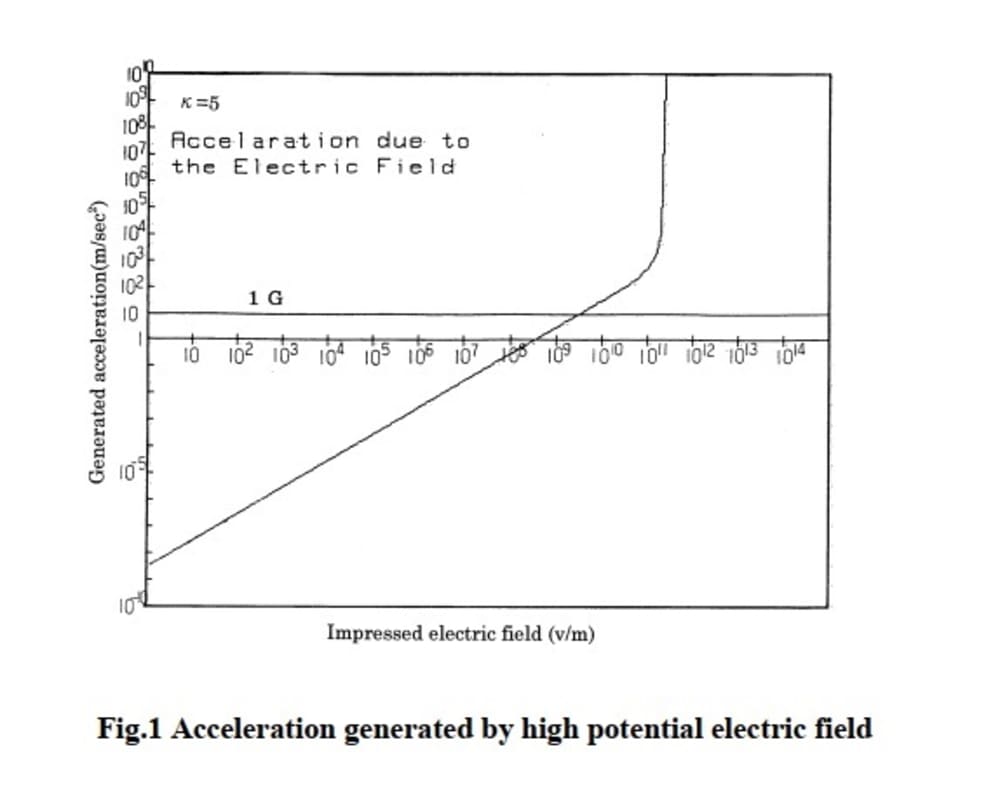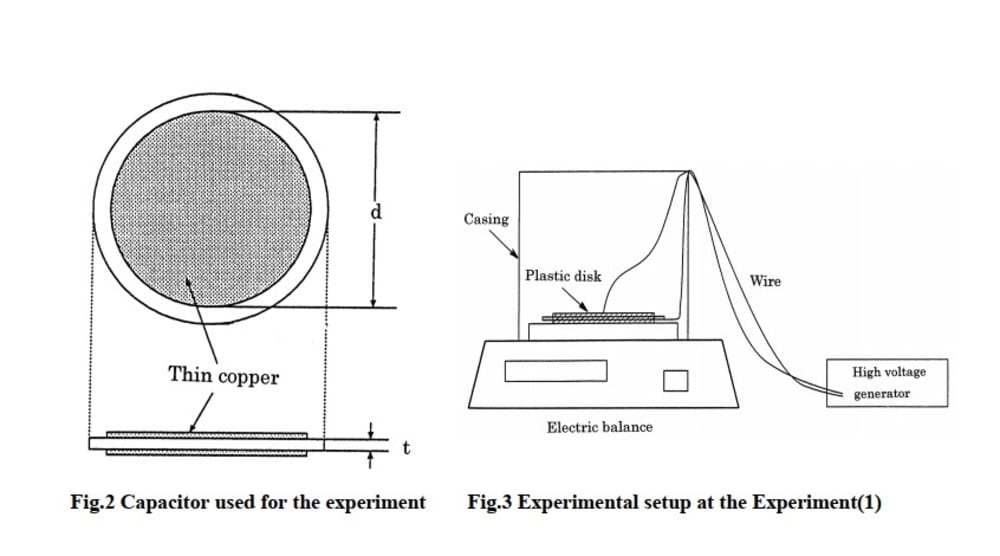In 1923 Professor Paul Biefeld and his student Thomas Townsend Brown discovered this effect during the test of a new type of capacitor. Basically the Biefeld Brown effect is electro gravitation. If you have a flat disk capacitor with a good dielectric like Barium Strontium Titanate (BaSrTiO3) and apply high voltage to the plates a directional force normal to the plates will be generated according to the formula developed by Dr. Musha Takaaki from Japan.
Eg=-8.62 x10-11*Z*(er) ^0.5*E
Where Eg is the acceleration obtained, Z is the atomic number of the dielectric, er is the relative permittivity of the dielectric and E is the Electric field through the dielectric given by
E= Voltage/thickness (volts/meters).
Using this idea I can imagine a personal vehicle with low mobile parts and low cost. The barium strontium titanate utilized in the dielectric costs about $200 per kilogram. I imagine a disk about four meters in diameter with a cockpit under it for the crew. For atmospheric use.
With such a disk and for example 100 kV you can develop a force of about one and a half tons for propulsion and lift the vehicle. To be properly guided the disc could be divided in three equal sectors of 120 degrees which can be charged different or equal to get differential forces to guide and lift the vehicle.
Additional formulas are:
F= m.a , m= Volume*density,
And thickness= Voltage/dielectric resistance =
Additional data are:
Density = 5200 kg/m3 for barium strontium titanate
Diameter of the disk = 4 meters
Voltage applied = 100.000 Volts
Dielectric resistance for barium strontium titanate = 100.000 Volts/mm
Replacing these constants by the values proposed we have:
Thickness= 100000 volts/ (100000 Volts/mm) = 1 mm
Force= Volume*density*(-8.62x10-11)*Z *(er) ^0,5*Voltage/thickness
Atomic number of the BaSrTiO3= (56+38+22+8*3)/6= 23.33
Force=8.62x1011x(3,1415x4mtsx4mts)/4*0.001mts*5200kg/m3*23.33*(13500)^0,5*100000volts/0,001mts=
Force = 1527 Kilograms approx.
Experimental results
In the video of this presentation I make an experiment with a 14 cms diameter glass capacitor with 4 mm of thick and 19.6 kV. The experimental force measured was about 1,4 grs. The theorical prediction is 1,57 grs. That confirm the good accuracy of the formula here presented.
Force= Volume*density*(-8.62x10-11)*Z *(er) ^0,5*Voltage/thickness
Atomic number of the glass SIO2= 10
Force=8.62x10e-11x(3,1415x0,14mtsx0,14mts)/4*0.004mts*2200kg/m3*10*(6,9)^
0,5*19600volts/0,004mts=1,577 x10-3 kgs=1,5 grs
With this principle that works in atmosphere and space you have a propellentless force of propulsion. The force generated by this system of propulsion is several times greater than ionic engines and photonic thrusters allowing to reach high speed only maintaining the charge in the capacitor.
This type of propulsion will be very useful for interstellar and interplanetary missions. Reducing the time of travel significantly.
It could be used to put into orbit heavy loads without using chemicals propellants and reducing the risk of explosions or failures.
This type of propulsion will give us a totally new class of transport vehicles, without contamination. Low cost and easy to manufacture.
Aeronautical Engineer Luis Alberto Migliorero
Video
Like this entry?
-
About the Entrant
- Name:Luis Alberto Migliorero
- Type of entry:individual
- Software used for this entry:Basic programs and excel spreadsheets
- Patent status:none








